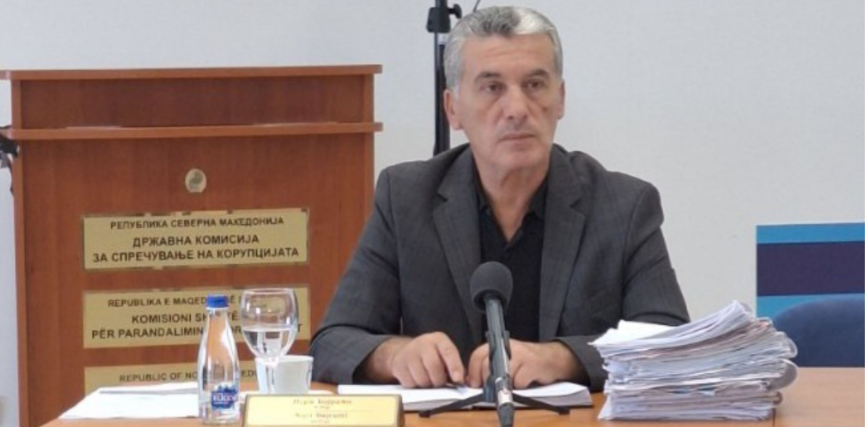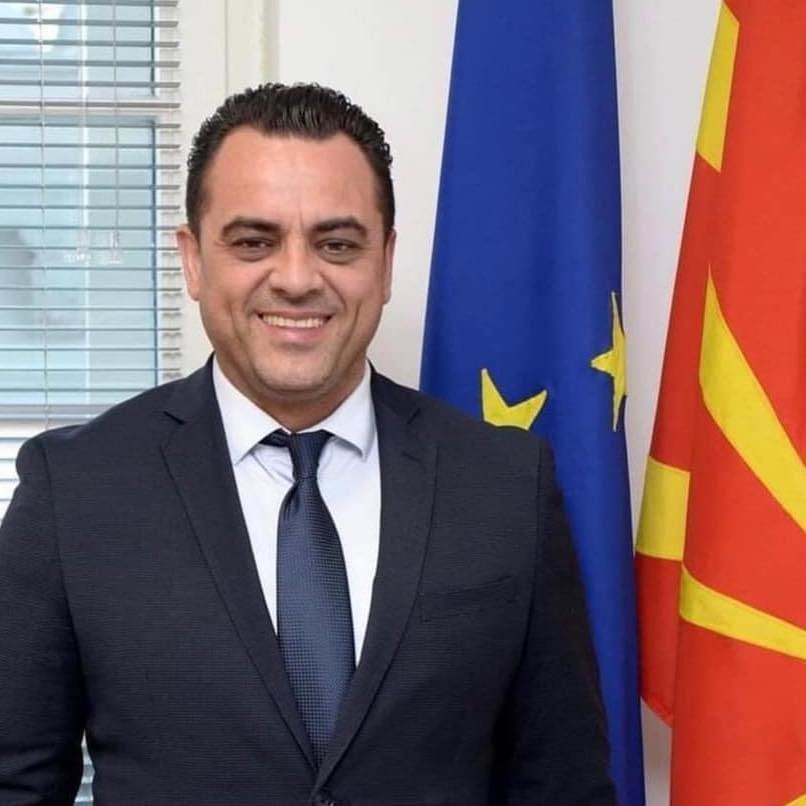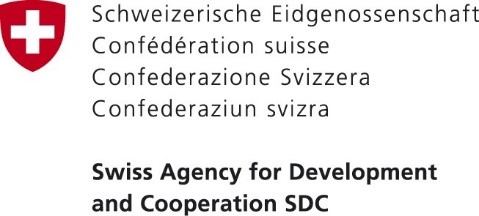
One of the country’s indicators of the fight against corruption is confiscated property. The perpetrators of crimes should have their property confiscated and returned to the state. Although the perpetrators would serve prison terms, justice will only be fully served if that property is confiscated.
In terms of how much property acquired through criminal acts is confiscated, the figures from the Agency for the Management of Confiscated Property in the period from 2016 to 2023 go from extreme to extreme in terms of the value of the confiscated for each year separately.
They also mentioned that for this entire period, or rather for each year separately, no assessment was made for most of the seized goods and it cannot be expressed in monetary terms.
In 2023, property worth 2 million euros was seized. In 2022, the amount of confiscated property reaches a total value of as much as 22 million euros, in 2021 almost a million euros, in 2020 2 million euros, in 2019 8 million euros, in 2018 just over a million and a half euros, in 2017 over half a million euros and in 2016 6 million euros.
https://infogram.com/konfiskuvan-imot-2016-2023-godina-1h0n25oy11g3z4p?live
The institution responsible for the confiscation of property acquired through criminal acts is the Agency for the Management of Confiscated Property, which was established in January 2009 with the entry into force of the Law on Management of Confiscated Property, Property Benefit and Confiscated Items in Criminal and Misdemeanor Proceedings.
That independent agency is directly responsible to the Government. The agency is competent to manage seized properties, proceeds from crimes and confiscated items, and with the consent of the court and competent authorities, it manages temporarily frozen and seized property, confiscated property and proceeds from crimes and confiscated items, in order to their value is preserved.
The agency conducts all procedures related to property management, including storage, appraisal of condition and value, recording of all properties it manages and sale of property. She is also responsible for making statistical, financial and other reports for the managed property.
The domestic legislation in North Macedonia provides for confiscation or confiscation in a criminal proceeding that is not based on a criminal conviction, in relation to natural persons and legal persons who have committed criminal acts, if the suspect is deceased, has escaped or is otherwise unavailable (Art. 540 of the Civil Code).
Corruption requires engagement, and confiscation of property requires more in-depth research
The professor of criminal law and criminology Elena Maksimova from the Faculty of Law at Goce Delchev University in Shtip says that the measure of confiscation of property and property benefits is necessary, but not isolated in the fight against corruption.
“Unfortunately, we live in a society in which corruption prevails and undermines all its aspects, that is, education, health, justice. In order to achieve any reduction of corruption, where it is too early and unrealistic to talk about its eradication, multi-sector and multi-disciplinary engagement would be needed”, she clarifies.

Maksimova added that in situations of unclear and changing legal solutions, we could not expect huge and firm success in practice.
“It is a utopia. It is necessary to stabilize the national legal system in the long term, maintain adequate training for all actors who have competences in the process of confiscation of illegal property benefits within the framework of criminal proceedings, models of their coordination and cooperation, increase in quality during the collection of data from the institutions, fully strengthening the capacities of the bodies that are directly involved in the implementation of the process. What is necessary for the successful application of the measure is the existence of legal stability”, Maksimova is decisive.
The former member of the State Commission for the Prevention of Corruption, Nuri Bajrami, says that the close friends and relatives of those who committed crimes and who acquired property in that way should also be investigated in order to find out if those close to him have his property that was acquired on illegal way and thus to find some connection.
“Without the Law on the Origin of Property of All Citizens, this cannot be done for all citizens, but only for officials, outside of a criminal act. If there is a crime, it applies to everyone. That is why the Law on the origin of property of all citizens was needed so that the Commission could check those persons. “This is where the whole thing actually stops and this is where the whole problem arises because there is no further research,” says Bajrami.

Regarding the problems that the institutions have when trying to seize property, the former director of the Agency for Management of Forfeited Property Faton Asani says that difficulties exist at the moment when the seized property is encumbered, and the property that is encumbered has no solution, that is it cannot go to an auction to be sold so that the state can return them to its ownership.
“In order to have a clean case, you need to have a clean court verdict, where this did not happen in our country.” There is movable and immovable property. Movable property is registered in the name of the owner who has been convicted and whose property has been confiscated by a court judgment, it is placed in the name of the Agency, so the confiscation of property is not so difficult, but it is difficult when you have paper in your hands and you have nothing physical. The agency is not even an investigative body that should investigate any movable property. While I was the director, a sales department was established for the first time, which did not exist,” said Asani.

The prosecutor’s office and the judiciary – key to efficient seizure of property
In the Assessment of the national system of integrity of the Republic of North Macedonia published by Transparency International – Macedonia in December of the previous year, the role of the prosecutor’s office is explained, which is one of the key institutions in the fight against corruption in general, so it also plays an important role in the confiscation of acquired property. with crimes.
“The Public Prosecutor’s Office is defined as a unique and independent state institution that prosecutes the perpetrators of crimes and other criminal acts sanctioned by law and performs other tasks established by law. It is organized in accordance with the principles of hierarchy and subordination, and it is established and can be abolished by law. The PPO can act before the Supreme Court. The head of the office is the Public Prosecutor’s Office of the Republic of North Macedonia”, the publication states.
It is emphasized there that in practice, prosecutors are often removed from their positions before the end of their mandate and that citizens’ trust in the public prosecutor’s office is extremely low, that is, only 3 percent of citizens have “great trust” in this institution.
“Prosecution achievements in corruption cases are limited, and convictions in high-profile corruption cases are rare. The Special Prosecutor’s Office (SPO), established in 2015 to investigate corruption cases, failed to preserve its integrity and was disbanded in 2020. Returning the cases to the public prosecutor’s office did not result in significant progress. Corruption cases often face a statute of limitations due to lengthy legal processes. “Investigations and charges related to corruption are ongoing, but several high-value properties have been seized,” it said.
As for the judiciary, the data is mentioned here that only 4 percent of the citizens have confidence in this institution.
“The commitment of the judiciary to the fight against corruption can be questioned due to the small number of successfully completed cases. The reports point to systemic problems in the judiciary and prosecution, where there is influence from the ruling parties and the lack of adequate accountability and integrity mechanisms. Despite the fact that the Constitution and laws of North Macedonia emphasize a high level of independence of the judiciary, research indicates the skepticism of judges regarding transparent processes for promotion, and tensions in the Judicial Council have led to illegitimate dismissals,” the publication states.
Professor Elena Maksimova adds that the success of the procedure for confiscation of property acquired through criminal acts in Macedonia varies and depends on several factors.
“Success depends on the effectiveness in the implementation of the laws, the strength of the legal framework, the judicial capacity and the political will to fight corruption.” In recent years, Macedonia has taken steps to strengthen its legal and institutional frameworks to fight corruption, including strengthening asset recovery mechanisms. One of the most significant first changes was the amended model of criminal procedure – the Law on Criminal Procedure from 2010, which entered into force in 2013, with which the main burden is on the gathering of evidence and proving the criminal acts, and thus on the illegally acquired property. benefit was transferred from the court to the public prosecutors”, says Maksimova.
In relation to the communication of the judiciary with other institutions with the aim of a more effective fight against corruption, it is stated here that it is mostly at the level of politics.
And in the publication titled “Fighting Corruption in the Western Balkans: Strengthening Regional Cooperation in the Field of Confiscation of Illegally Acquired Assets” made by the Councils for Individual Rights in Europe (AIRE) and the Regional Anti-Corruption Initiative (RAI) published in 2021, the role is explained of the prosecutor’s office and the legislation, which have a key role in confiscating property acquired through criminal acts.
“The Law on Criminal Procedure in Article 530 provides a legal basis for finding and identifying property and property benefits acquired by committing a crime. The public prosecutor is obliged to collect evidence during the procedure and to investigate the circumstances that are important for determining the property and the property benefit and to propose measures specified in Article 202 of the Civil Code. In relation to determining the amount of property and property benefit obtained by the crime, the public prosecutor may request necessary notifications from other state authorities, financial institutions or legal entities and citizens, who are obliged to submit the information without delay. If there is a reasonable suspicion that the property is abroad, the court is obliged to issue an international warrant or declaration,” it is stated there.
The Public Prosecutor’s Office is overall competent for financial investigation. In performing the tasks that fall under the competence of the OJ, the public prosecutor cooperates with a wide range of agencies and authorities, including the Financial Police, the Ministry of Internal Affairs, the Public Revenue Administration, the Customs Administration, the State Commission for the Prevention of Corruption, the State Office for audit, the State Foreign Exchange Inspectorate, the State Market Inspectorate and other inspection authorities and bodies, other state authorities and legal entities that, according to the law, have tasks to prevent and detect criminal acts.
“The public prosecutor can also cooperate and exchange information with prosecutors, foreign police and state bodies from other countries and organizations working in the field of financial crime, based on bilateral agreements and ratified international agreements regarding matters falling within the prosecutor’s jurisdiction. jurisdiction. However, the public prosecutor can only search all databases, bank accounts, records and reviews of the Public Revenue Authority, the Cadastre, the registers of securities, motor vehicles and other databases only on the basis of a court order. This is not an efficient procedure and it should be improved with a legal and procedural amendment,” the publication states.
In terms of legislation, this publication states that it allows bank accounts to be monitored under certain conditions set out in the LCP.
During the pre-investigation or investigation phase, at the request of the public prosecutor in connection with illegally acquired property, the judge of the preliminary procedure can make a decision to monitor bank account transactions, and such a decision is made by the first-instance court after submitting an indictment.
“The pre-trial judge must decide within 12 hours of receiving the request. If the judge does not accept the public prosecutor’s request, he or she will ask the council of judges to rule on the request without any delay. Then, the council of judges makes a decision within 24 hours of receiving the request from the public prosecutor. At the request of the public prosecutor, the pre-trial judge may order a bank or other financial institution to monitor the financial transactions of that person and to regularly and promptly report to the public prosecutor at certain time intervals specified in the decision. Based on a reasoned request from the public prosecutor, the court can also order a financial institution or other legal entity to stop the execution of certain financial transactions or temporarily seize certain property,” the publication states.
Previous reports by AIRE and RAI have concluded that the capacity of police services and public prosecutions to conduct financial investigations is low. Even if the Financial Police Law is taken into account, the study by AIRE and RAI highlighted numerous shortcomings in effective instruments for finding and identifying illegally acquired property, incomplete property records, absence of specialized departments responsible for finding property and lack of inter-institutional coordination.
In 2016 there were six final verdicts, in 2017 there were 16, in 2018 there were 42, in 2019 there were 112 final verdicts, in 2020 20, in 2021 90, in 2022 131, and the most final verdicts in the mentioned period were last year and it 132 final judgments.
Faton Asani added that the Government should give more support to this Agency so that it can achieve its maximum.
“You cannot expect this institution to be treated like any other, and expect money to enter the Budget from the same institution. The agency must have the support of the Government in order to be able to seriously contribute to the confiscation of property and the return of those funds that belong to the state. The point is not that the confiscated funds are simply returned to the Budget. I had the idea that all the money from the sales of vehicles should go to a special account where ambulances would be bought with those funds, where the people would directly see the benefit from the confiscation of property acquired through criminal acts. An institution that does not have continuity will not be successful in its work,” Asani is determined.
In the European Commission’s 2023 country report, it is stated that North Macedonia needs to improve its record of investigations, prosecutions and sentencing in cases of organized crime and money laundering with a focus on confiscation of the proceeds of crime, to enact and implement the necessary Asset Forfeiture Service legislation and strengthen the human and financial capacity of law enforcement agencies investigating organized and serious crime, financial crime and money laundering.
Regarding when the seized property is encumbered, Bajrami said it must be handled through executors.
“Regarding what the State Commission for the Prevention of Corruption can do in such a case is to investigate the property of officials, that is, the elected and appointed persons in the public sector, normally if it has knowledge. Initially, it is those persons, but, in order to investigate the complete property, they should also check the persons close to them, where they are not always the property of those persons is reported. There is no such legal basis in the Law on Prevention of Corruption and Conflict of Interest because they are not officials. “If it happens that some data does not match what the official reported, the DCSC requests additional information and if something is discovered, an initiative is launched,” he explains.
The use of the measure is at a low level
Confiscation of criminal assets demonstrates that action is being taken to seize ill-gotten gains, which can help reduce corruption and strengthen confidence in the legal system.
Until 2017, only one politician had his property confiscated, that is Ljube Boskovski, former leader of the United for Macedonia party who served a prison sentence for illegal financing of the pre-election campaign.
Apart from Boskovski, Slobodan Bogoevski, the former director of the Security and Counterintelligence Administration for the crimes of money laundering, abuse of official position and authority and tax evasion, also had his property confiscated.
According to the data from the State Statistics Office, in the period from 2017 to 2022, 308 property confiscations were imposed, as well as 3749 seized items.
Professor Maksimova emphasized that the efficiency of the measures taken may be affected by challenges such as resource limitations, procedural delays and potential interference or corruption in the justice system.
“We have data on the first imposed measure for confiscation of property in our country from 2008, four years after its introduction, where until 2004 there was a provision for confiscation of property benefit obtained through a crime, and considering the statistics, we see that the practical application of the measure is actually relatively low, especially when we have cases of high corruption”, she explains.
On what other indicators are needed to effectively fight corruption, she said that this fight requires a multifaceted approach, including strong legal frameworks, transparent governance structures, independent judicial systems, whistleblower protection, public awareness and commitment campaigns and from the government and the citizens to support integrity and responsibility.
“International cooperation is needed. Corruption often crosses borders, so international cooperation through agreements and sharing of best practices can strengthen anti-corruption efforts. Also, civil society engagement in the direction of empowering civil society organizations, the media and citizen watchdog groups to monitor government activities, advocate for transparency and hold officials accountable is vital. Adequate and up-to-date technological solutions and digital platforms are inevitably needed. No less important is the education of the public about the negative effects of corruption, their rights and how to report corruption can encourage citizens to become active participants in the efforts to fight against corruption,” she stressed.
The last legal changes were made in March of this year in the Law on confiscation of property in civil proceedings and the Law on the office for the return of property, where it is necessary to pass 6 months for the changes to enter into force.
In 2009, the extended confiscation was introduced, with the aim of adequately implementing the international recommendations and instruments for an effective fight against organized crime and corruption.
The countries of the Western Balkans with similar problems regarding property confiscation
The publication mentioned in this text also explains the situation for other countries from the Western Balkans regarding the confiscation of property acquired through criminal acts, as well as the work of the Agency for the Management of Confiscated Property in each of those countries.
“International standards recommend that, in order for states to effectively target and reduce criminal activity through the use of asset forfeiture measures, asset forfeiture should be a particular focus of the work of ministers, policy makers , legislators and practitioners from all authorities and agencies. This situation can only be fully realized if confiscation of ill-gotten wealth is the policy objective. “Ensuring that confiscation of illegally acquired property is a policy objective will also require strong political will,” it states.
It is stated that there are no separate committees or commissions for confiscation of illegally acquired property in any of the six countries.
“Forfeiture of ill-gotten property is an integral part of criminal justice and it is necessary to change the day-to-day processes of agencies to carry out effective forfeiture of ill-gotten property.” This includes the need for tangible changes that can only be implemented by practitioners. An action plan without a committee for its implementation is a fundamental weakness in the process of implementing effective confiscation of illegally acquired property. In addition to that, the existing strategies for fighting organized crime, preventing money laundering and corruption do not specifically refer to the confiscation of illegally acquired property, but only contain a small number of objectives for the confiscation of property benefits from the respective crimes”, it is clarified. in the publication.
Other important aspects mentioned here are the measurement of effectiveness and the collection of statistics.
Measuring the effectiveness of any asset forfeiture system relies on a number of factors, including asset forfeiture statistics, but also the level and type of crime in the jurisdictions and the threat it poses.
Also, having access to comprehensive statistics that are prepared and/or stored in one central location is essential to the process.
In addition to collecting aggregate statistics on the number of seizures and confiscations and their value, EU standards now also require jurisdictions to monitor the number of international inbound and outbound requests in order to monitor and measure the effectiveness of international asset forfeiture.
“When statistics are collected on seized and confiscated properties and their value, interactions with other jurisdictions are rarely mentioned. International cooperation in the process of confiscation of illegally acquired property is a vital part of any success. “EU standards now require the collection of statistics on inbound and outbound international requests for the enforcement of seizure and confiscation orders, and that is the standard the region should aspire to,” it said.
It is estimated that in Europe the amount of benefit obtained through criminal acts ranges from several hundred billion euros to almost one thousand billion euros, of which only a small part is successfully confiscated.
The Republic of North Macedonia is among the first Balkan countries to implement the measures for the confiscation of proceeds obtained from crime and to establish the legal basis for the confiscation of proceeds, with the main challenge being its practical implementation.
Confiscation of proceeds of crime is increasingly recognized as an effective way to combat organized crime.
Author: Kristijan Trajchov
This research story was prepared within the framework of the project: “EU4 Rule of Law: Civic Engagement for Public Integrity (CEPI) in the Western Balkans and Turkey”, implemented by Transparency International – Macedonia, and financed by the European Union and the Government of Switzerland. The content of this document is the responsibility of the author and does not necessarily reflect the views of the European Union and the Government of Switzerland.


